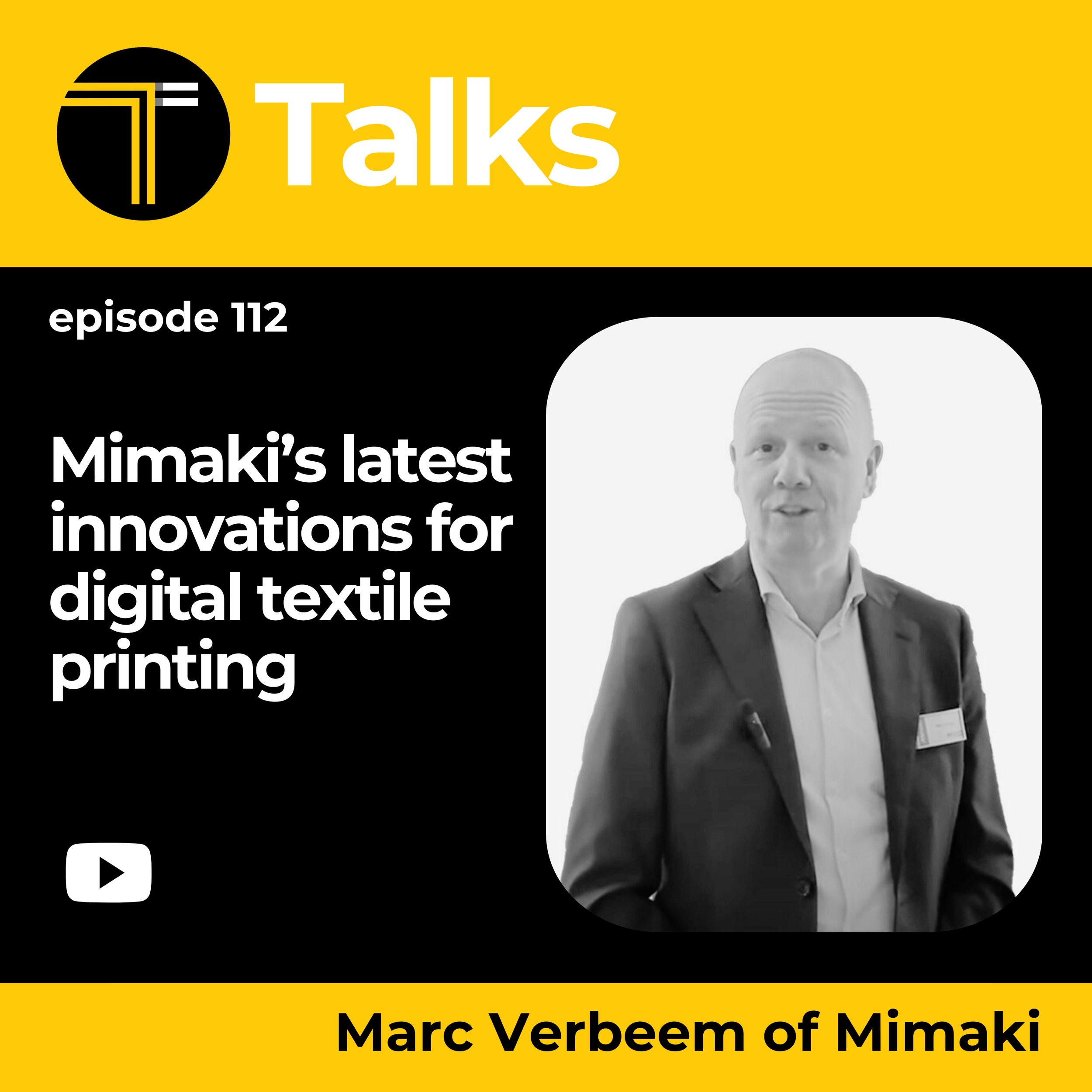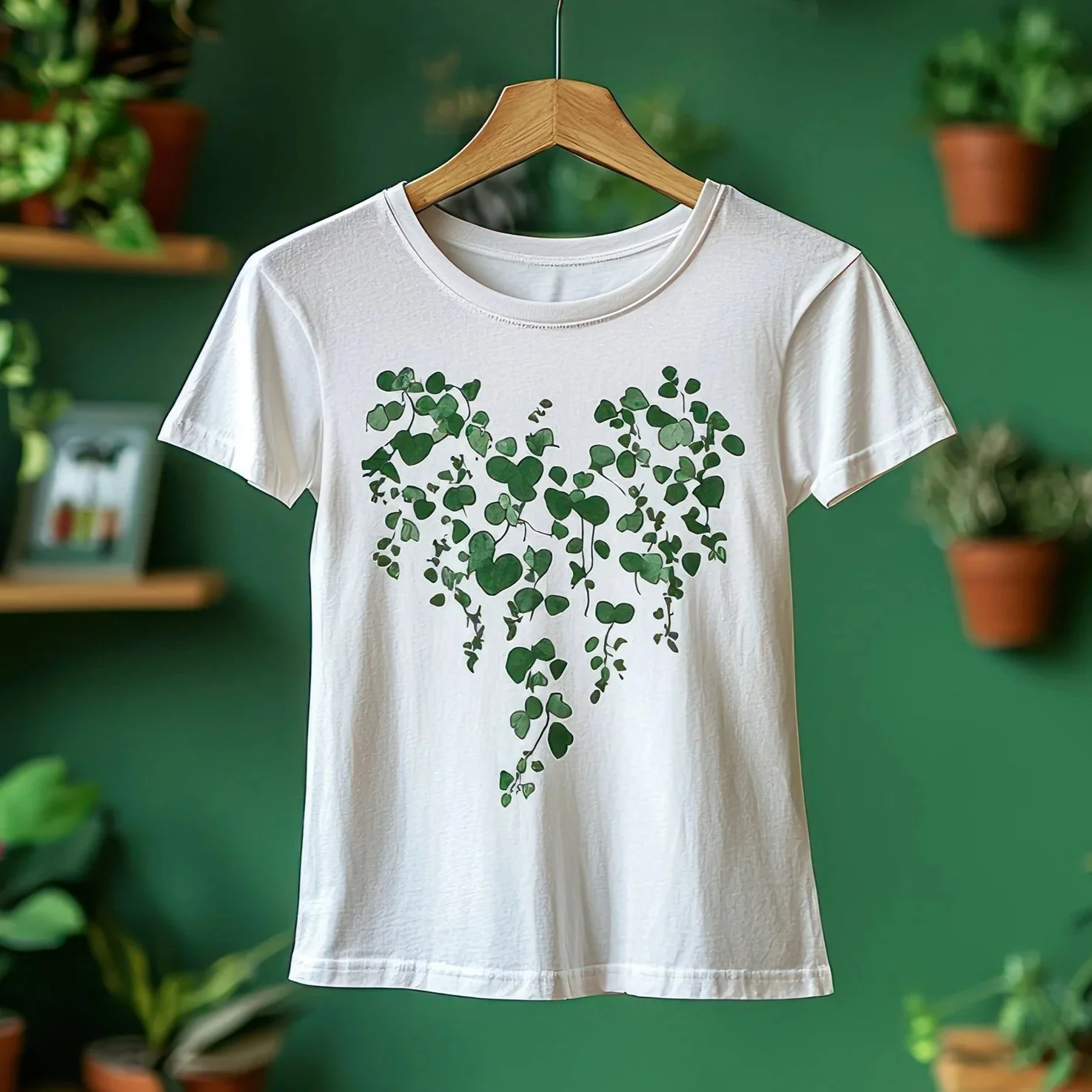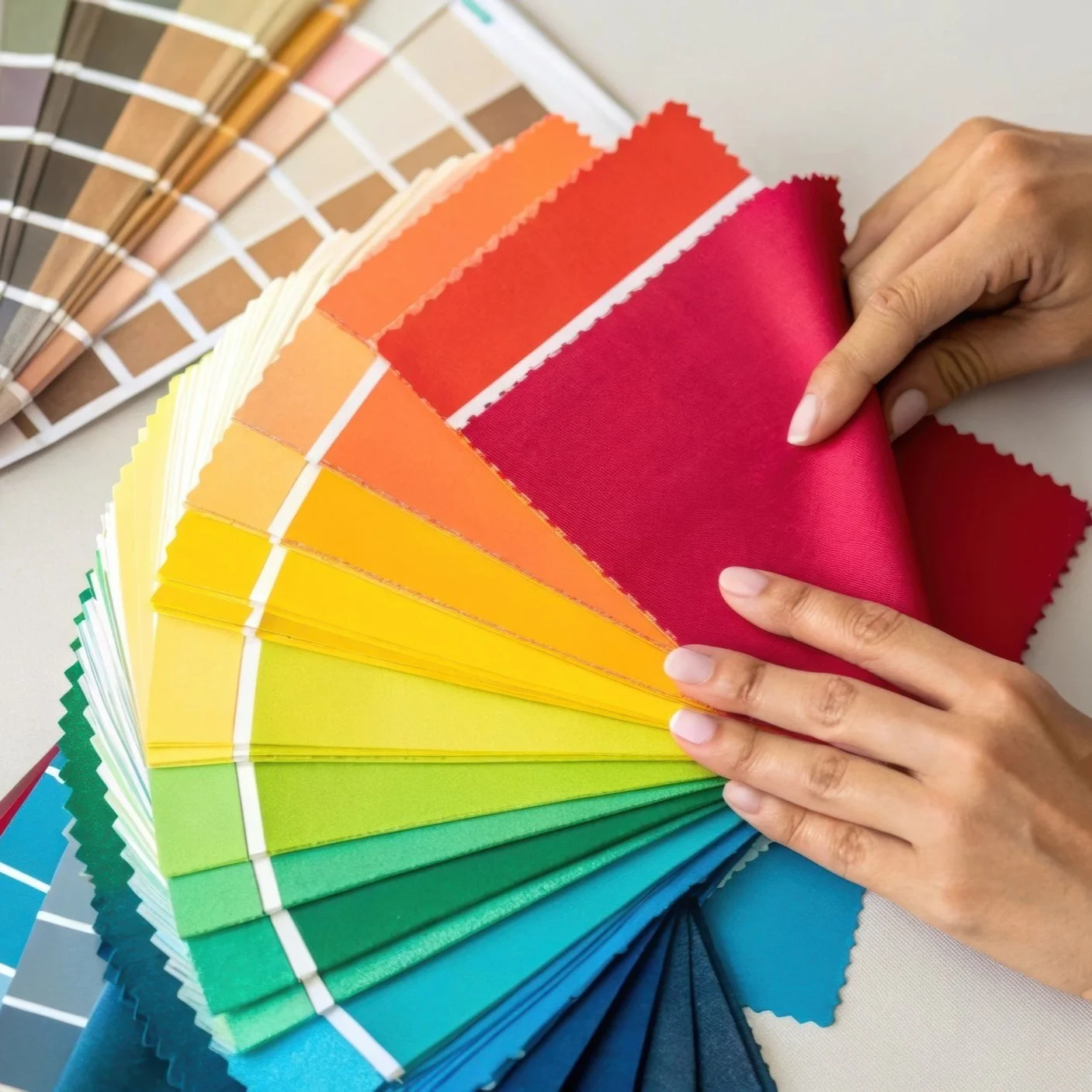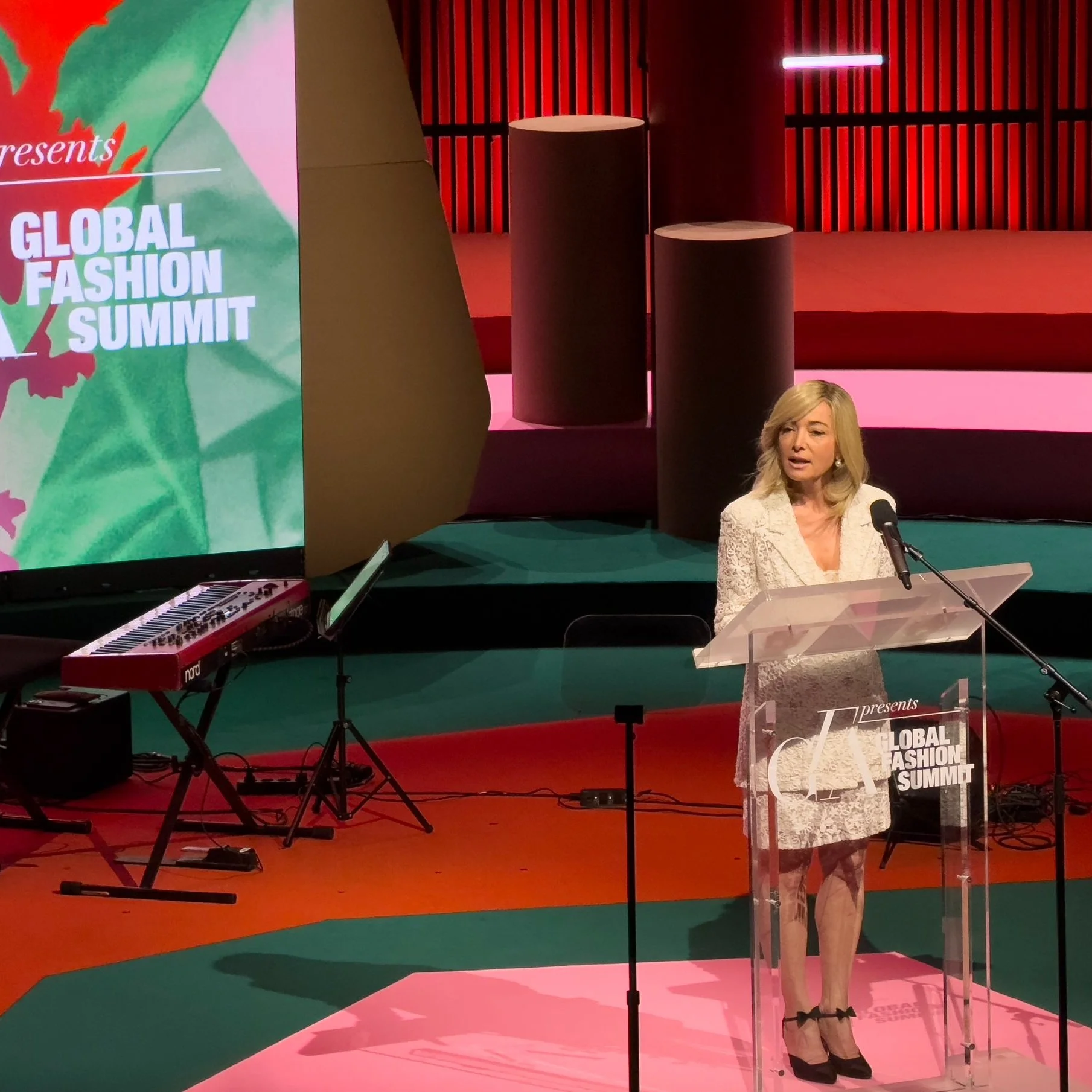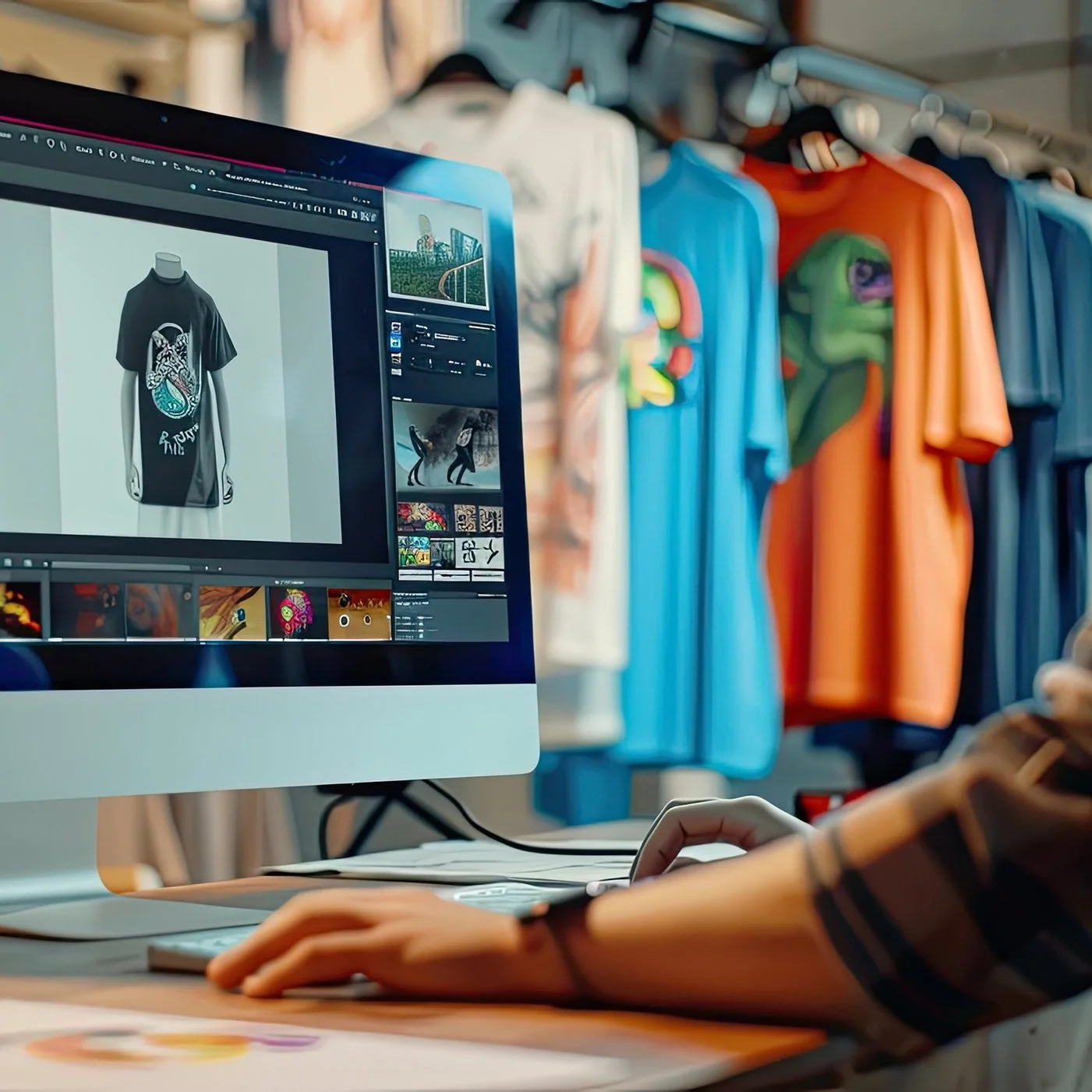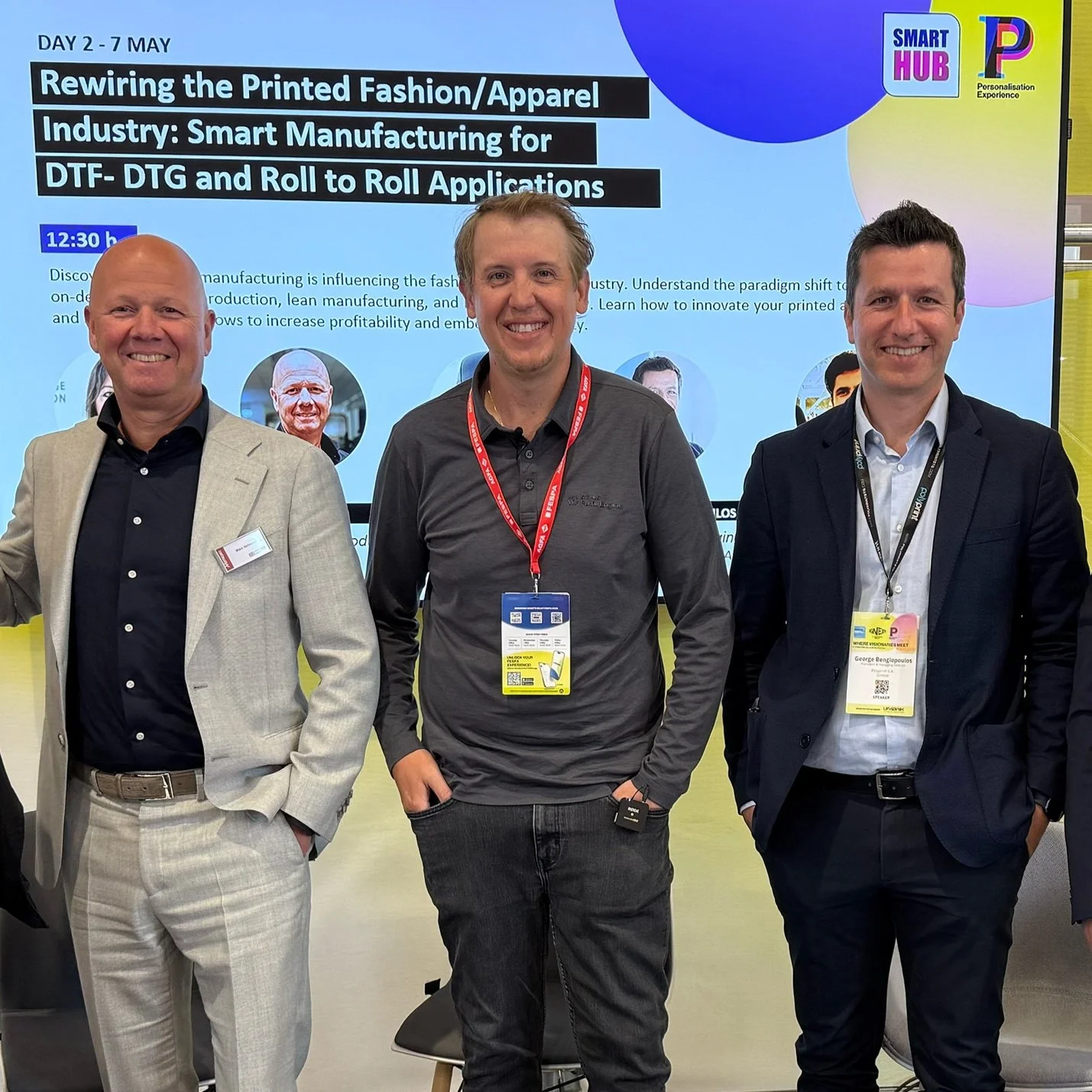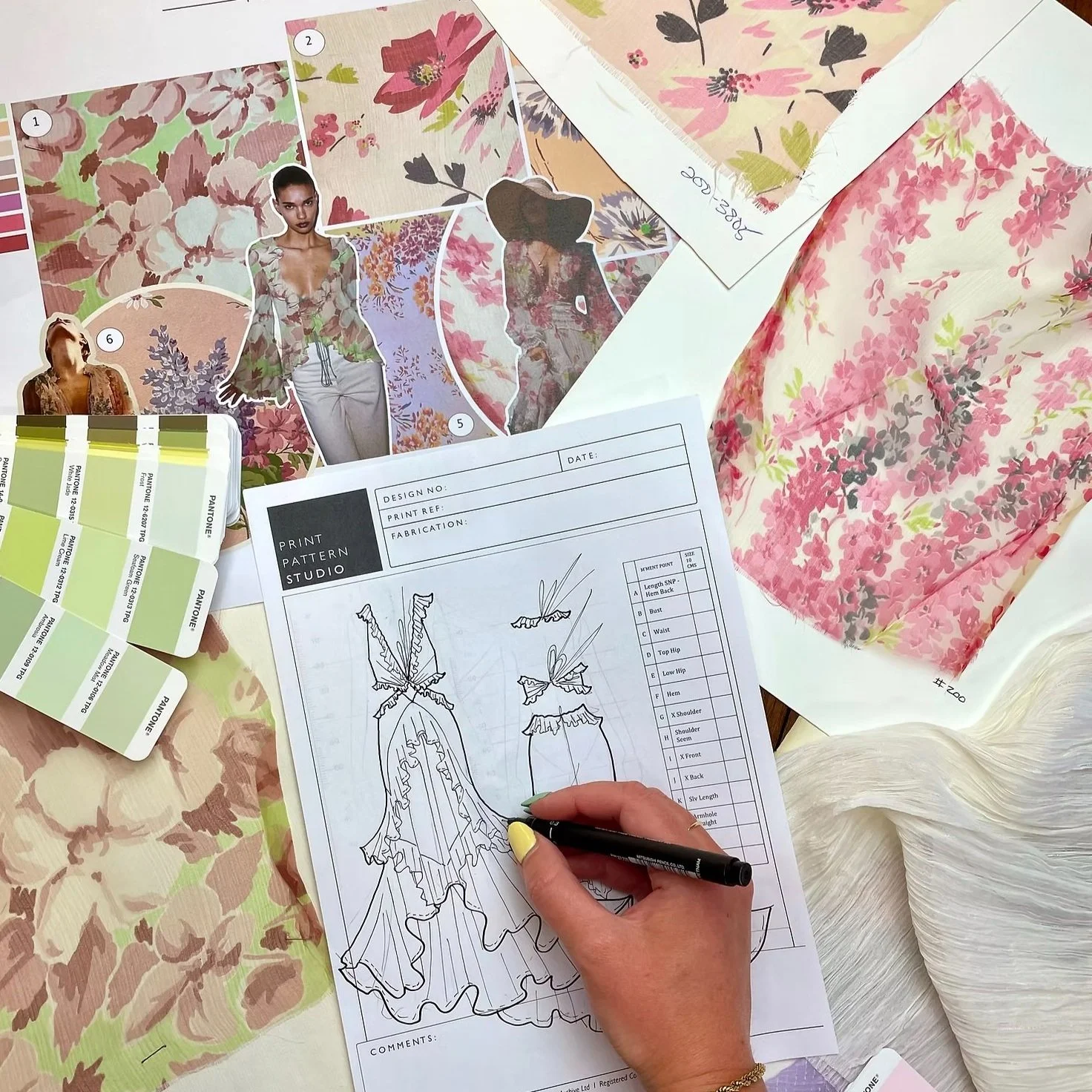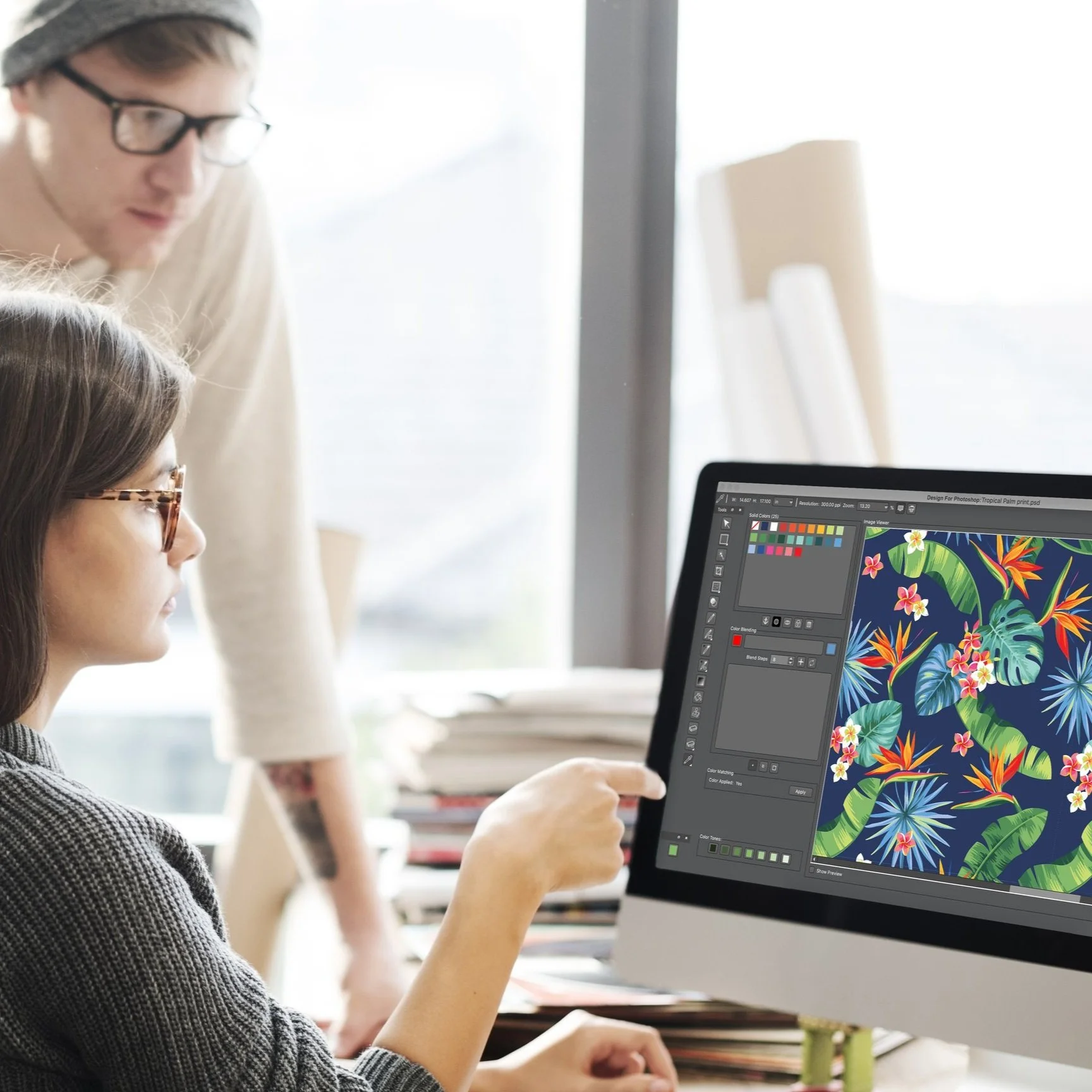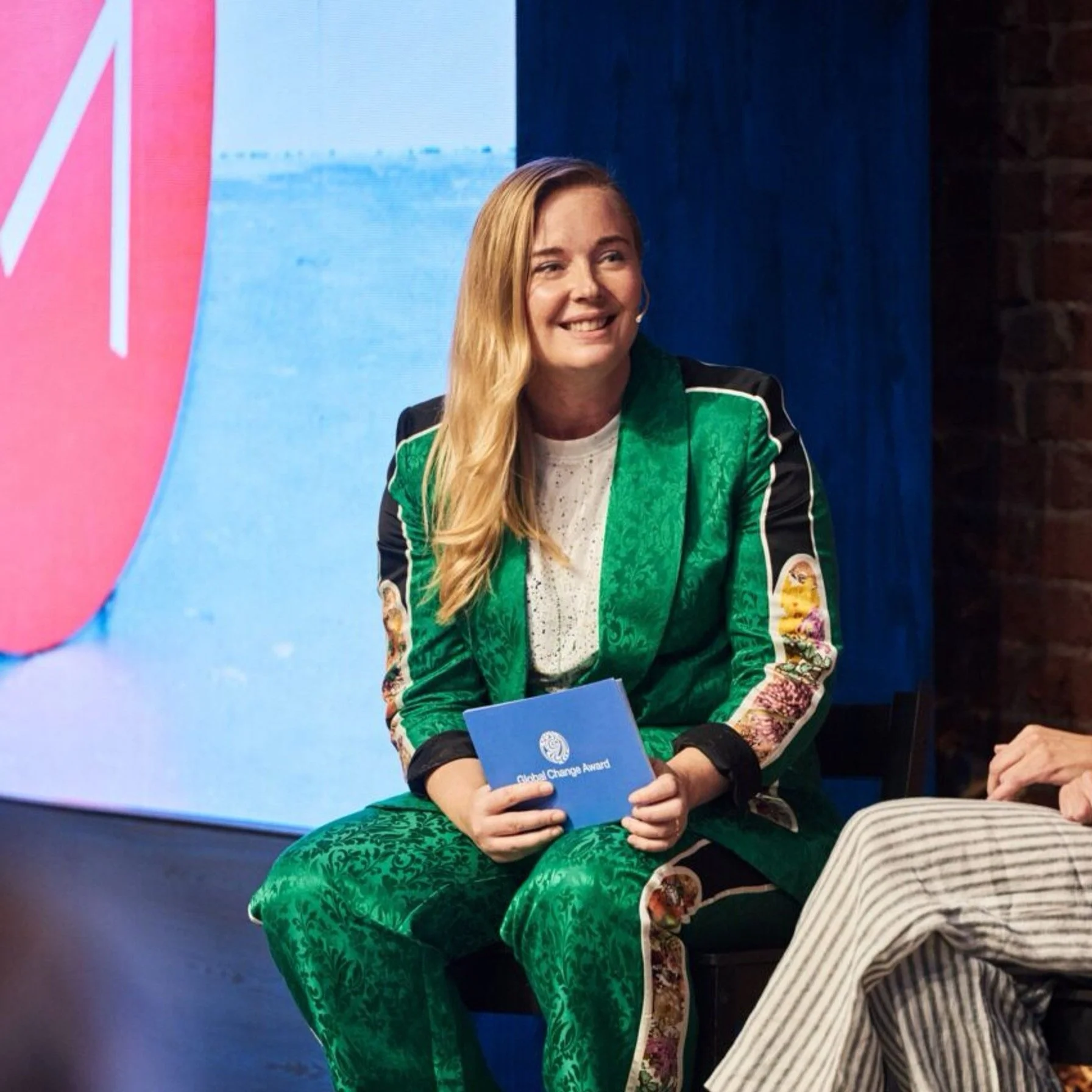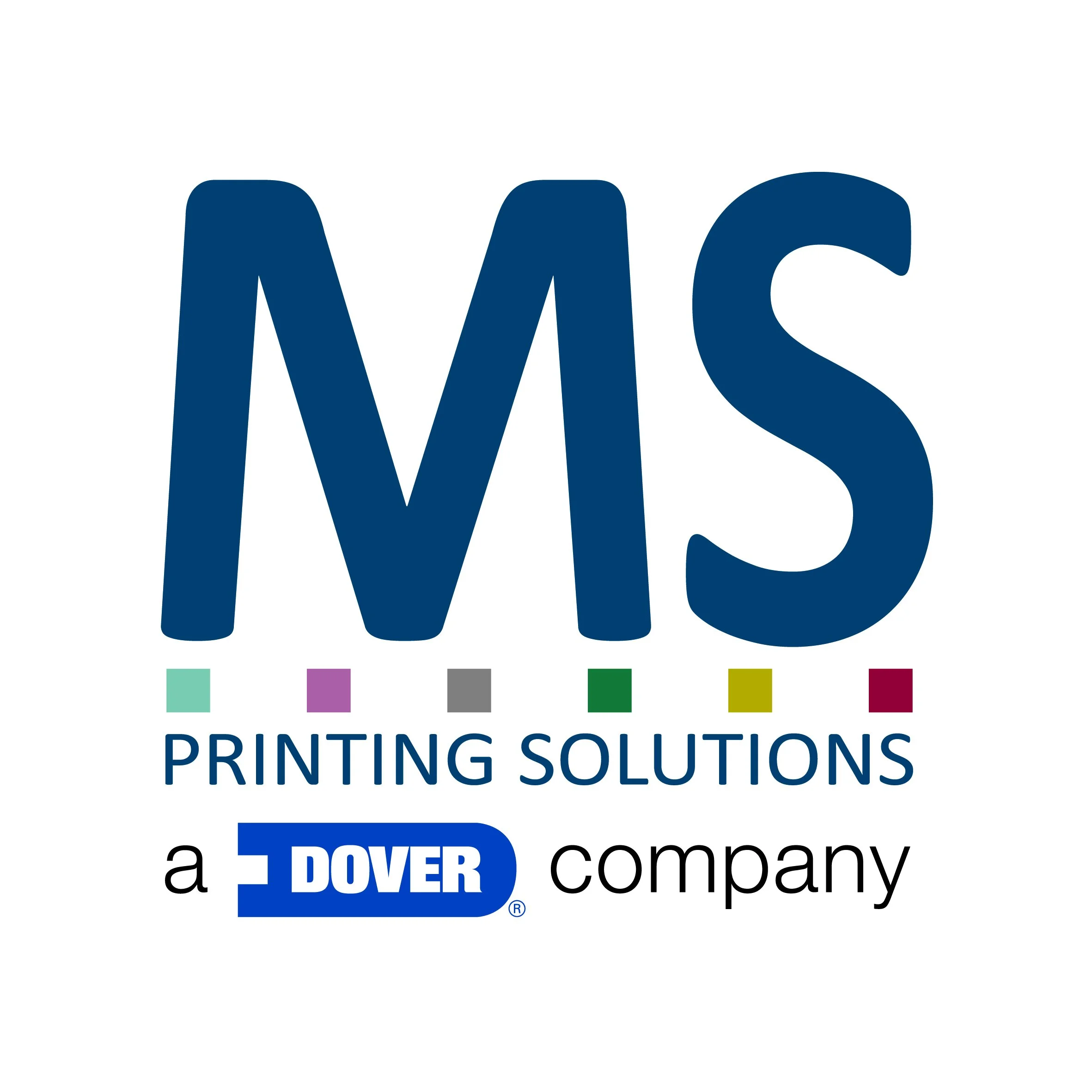TEXINTEL TALKS - EPISODE 059 - ADELE GENONI - EFI REGGIANI - 50 MILLION METRES AND BEYOND - DIGITAL TEXTILE PRINTING INSIGHTS
In our latest podcast we discuss digital textile printing with Adele Genoni the Senior Vice President and General Manager of EFI Reggiani.
The textile Industry has accelerated its march towards digitization for a number of reasons - partly as a direct result of the pandemic and the urgent requirement for sustainable technologies but also to meet the needs of the consumer and our print customers.
In this podcast we discuss new technologies and Adele shares her insights on Industry trends and how EFI Reggiani technology is evolving to fulfil market demands and more…
KEY TOPICS FOR DISCUSSION:
Has the pandemic accelerated the uptake of digital technologies – and in which sectors do you see the biggest opportunities for growth?
EFI have recently launched a new entry level machine – the Blaze – Can you tell us more?
Why did EFI develop this machine and who is the target customer/industry sector?
How important is it to offer the industry a “total solution” – software, service, inks, technology and support combined?
EFI launched the Bolt, a high speed single pass machine 3 years ago – Where are these machines operating and do you see industrial production reshoring into Europe?
EFI offer a comprehensive suite of technology – allowing customers to grow with EFI tech – Can you share some success stories?
Of all the inks sets that you supply – Which ink set do you think offers the largest opportunity for growth?
Are your customers switching to digital technology to offer speed of production and sustainability combined – and if so - do you see this at all levels of production volume?
What does the future look like? Do you think that digital technologies will eventually replace screen printing?
In this conversation, Debbie McKeegan, Brooke Roberts-Islam, and Anja Sadock discuss the critical topic of compliance in the fashion industry, focusing on the increasing number of regulations and the importance of data management in ensuring compliance. They explore the challenges faced by smaller businesses in navigating these regulations and highlight the opportunities that arise from embracing compliance as a positive step forward.
The discussion emphasises the need for a structured approach to data collection and the importance of mapping supply chains to improve transparency and accountability.
In this podcast episode, Debbie McKeegan interviews Kate Hills, founder of Make It British, discussing the state of UK manufacturing, particularly in the fashion and textile industry. They explore the Leicester Made event, the challenges faced by fashion manufacturers in Leicester, the importance of local production, and the need for a national campaign to promote 'Made in Britain'. The conversation highlights the benefits of choosing UK manufacturers, the issues of onshoring, and the necessity for a fairer industry that values Quality over Quantity.
In this conversation, Debbie McKeegan, Fespa Textile Ambassador and Mike Scrutton of Adobe discuss the latest innovations in textile printing, focusing on Adobe's PDF print engine 7 update and its impact on the industry. They explore the challenges of colour management, the importance of automation, and the future of on-demand manufacturing and personalisation in textile printing. The discussion also highlights the need for better visualisation tools to meet customer expectations and the potential for exciting advancements in the field. Listen to learn more…
In this podcast, Debbie McKeegan interviews Guy Yaniv, President of EMEA at Kornit Digital about the future of personalised fashion.
They discuss the shift in consumer demand towards individuality and self-expression, the technological advancements in garment decoration, and the impact of their Apollo technology on production processes. The conversation highlights the importance of agility in the apparel industry and the need for organisations to adapt to changing market demands. They also explore the challenges of digital transformation and the role of technology in empowering creativity within the fashion ecosystem...
Listen to learn more >>
In this podcast episode, Debbie McKeegan interviews Suzi Ward, the Managing Director of Fespa UK, discussing the evolution of the association, its role in supporting the print industry, and the importance of community engagement.
They explore the growth of membership, sustainability initiatives, and the Next Generation programs aimed at engaging youth in the industry.
The conversation highlights the challenges faced by small businesses, the need for government support, and the significance of networking within the print community.
Suzi emphasises the mantra of making a difference in all initiatives and the importance of collaboration for the future of the industry.”
Listen to learn more >>
In this podcast, Debbie McKeegan talks with Michael Mayr, a co-founder of Silana a Robotic sewing technology company based in Vienna, Austria.
Michael discusses the challenges and innovations in the textile industry, particularly focusing on robotic sewing and automated, sustainable production. He shares insights from his background in fashion, the need for automation, and the role of AI in revolutionising garment manufacturing.
The conversation highlights:
The importance of nearshoring production,
The challenges faced in the industry, and
The vision for a more sustainable future in fashion…
Listen to learn more >>
In this podcast, Debbie McKeegan and April Holyome – head of Product at the luxury Italian brand 16Arlington discuss the evolving landscape of fashion at the Epson Textile Academy. They focus on sustainability, career paths, and the importance of understanding the supply chain. April shares her journey from a print graduate to head of product at 16 Arlington, emphasising the need for creativity and business acumen in the fashion industry. They explore the significance of internships, the role of sustainability in design, and the importance of confidence and knowledge in navigating the fashion world. Listen to learn more >>
In this podcast episode, Debbie McKeegan and Bobby Grauf discuss the rise of product personalisation in the printing industry and the software that enables on-demand customisation. They explore how consumer demand for personalised products has surged and how this trend is reshaping market opportunities and the software the print industry must invest in to meet expectations.
The conversation delves into the importance of technology in enhancing customer experiences and the role of AI in streamlining the personalisation process. Bobby shares insights on how businesses can leverage these trends to create unique offerings and improve customer satisfaction. The discussion also highlights the importance of optimising production and fulfillment processes to meet customer expectations in the evolving printing industry. Listen to learn more >>
In this podcast, Debbie McKeegan hosts a roundtable discussion with Guy Alroy of Early.Vision, Oliver Mustoe Playfair of Prinfab and Phil McMullin of Epson UK. Their discussion explores the paradigm shift in the fashion industry from fast fashion to personalised fashion, highlighting the challenges, solutions, and benefits for the manufacturing community. Looking at all aspects of production to share their knowledge and expertise on how automation software in tandem with smart technology offers a solid solution for optimised apparel manufacture.Experts from Printfab, Epson, and Early Vision share insights on the role of technology, sustainability, and the future of apparel production. Listen to learn more >>
“In this podcast, Debbie McKeegan interviews Michael Chramtchenko, Chief of Staff - Sales and Marketing at Fiery. They discuss the company's innovative software solutions for the print industry, particularly in garment decoration. They explore the disruption caused by direct-to-film technologies, the importance of colour management, and the future potential of automation and AI in print technology. The conversation highlights the challenges and opportunities in on-demand apparel production and the evolving landscape of the textile industry…Listen to learn more >>
“In this engaging conversation, Debbie McKeegan speaks with Kathryn Sanders, founder of Western Sensibility, about her journey in the textile and digital printing industry. They discuss the innovative services offered to the interior design industry by Western Sensibility, including custom printing for various materials, the launch of their Innovation Lab, and their commitment to sustainability. Kathryn shares her passion for democratising design, the evolution of textiles and wallcoverings, and the importance of creative collaborations. The conversation concludes with insights into the future aspirations of Western Sensibility and the exciting projects on the horizon”.
In this podcast, Debbie McKeegan interviews Frank Maeder, president of NedGraphics and Optitex, discussing the evolution of textile design, the integration of technology, and the importance of sustainability. They explore how designers' roles have changed, the impact of digital tools like NedHub and their latest software release, plus the necessity of partnerships in the industry. The conversation also touches on the future of AI in design and the need for seamless workflows to enhance creativity and efficiency. Listen to learn more >>
In this podcast episode, Debbie McKeegan interviews Viktor Lazzeri, COO of Barbieri Electronic, to discuss the critical role of spectrophotometers in achieving colour accuracy in digital printing. They explore the science behind colour measurement, the importance of consistency, and the challenges of matching colours across different materials. Viktor shares insights on minimising waste and reducing reprints through effective process control, emphasising the need for standards and colour accuracy in the printing industry.” Listen to learn more >>
"In this podcast we meet Adam Root, founder of Matter Industries and his innovation Regen™ , a capture technology to remove microfibres from the textile manufacturing process for the benefit of human and environmental health. We also meet Lewis Shuler of Paradise Textiles who are collaborating on research and the application of Matter’s technology for textile manufacturing. The retrofittable technology reduces microfibre emissions and operating costs for textile factories, offering a scalable solution for the industry. Backed by Regeneration.VC - the Leonardo DiCaprio supported climate tech fund – with the announcement made at its Annual Meeting during New York Climate Week. The first installation is planned at Paradise Textiles’ sustainable textile facility in Egypt by Q4 2025.”
"In this podcast, Debbie McKeegan interviews Francesco Nozza, the business development manager at Epson Italia, together they discuss the future of industrial direct to textile printing. They explore key market insights for Autumn 2024, the impact of e-commerce on fashion and sportswear, and the innovative solutions Epson offers to meet the changing demands of the textile industry. The conversation highlights the importance of sustainability, the shift from traditional to digital printing, and the advancements in Epson's Monna Lisa suite of machines. " Listen to learn more >>
"In this podcast episode, Debbie McKeegan and Adrienne Palmer discuss the emerging technology of Direct to Film (DTF) printing, its applications in the apparel industry, and its potential to disrupt traditional printing methods. They explore the fundamentals of DTF, its sustainability benefits, and the challenges of quality and design".
The conversation also touches on the competitive landscape of DTF printing comparing it with Direct to Garment (DTG) printing, and speculating on the future of garment decoration, including the role of automation and AI.” Listen to learn more >>
"Jeremy Parker, former CEO of swag.com and founder of SwagSpace, shares his entrepreneurial journey and the evolution of the promotional marketplace. He started as a documentary filmmaker but pivoted to entrepreneurship after realising his passion and skill set didn't align with filmmaking. He started a t-shirt company and eventually founded swag.com, which became the fastest-growing company in the promotional space. Now, with SwagSpace, Parker aims to revolutionise the industry by providing a free platform for promo distributors to streamline their sales process and become the de facto supplier” Listen to learn more >>
“Empowering Women in Print: This conversation is about women in the print industry and the organizations that support and empower them. The guests, Lisbeth Lyons and Sarah Fenna, discuss the Women in Print Alliance and Women in Signs and Graphics, respectively. In conversation they talk about the challenges faced by women in the industry and the need for more representation and support. They also discuss the importance of engaging with education and attracting the next generation of women to the print industry. The conversation ends with a call out to the industry for support, collaboration and the sharing of ideas and resources." Listen to Learn More >>
“This podcast features the audio from our recent Textile Workshop. Held at Hybrid Services, and surrounded by the latest digital printing technologies within the Mimaki demonstration centre, experts and industry professionals gathered for a day of Insight, Inspiration and Knowledge transfer. During the roundtable discussion, centred on the “Future of On-demand Textile Production” the conversation focused on key market shifts and challenges in the textile industry. The participants discuss various perspectives, including applications, materials, fabric innovations, and industry-wide changes. They highlight the demand for high-speed printing, stable colours, and sustainability..” Listen to Learn More…
“This podcast features the roundtable discussion between thought leaders: Kerry Bannigan, Ross Newens and Matt Neville and revolves around the challenges facing the fashion industry in 2024, with a focus on sustainability, innovation, and supply chain transparency. In conversation they discuss the need for education and knowledge sharing to drive environmental best practices and the importance of financial commitment to scale sustainable solutions. They also highlight the potential of on-demand manufacturing and the adoption of new materials and technologies.In the next two years, they hope to see a significant shift towards sustainable materials, circular economy models, and technology advancements that drive sustainability.” Listen to Learn More…
“In this podcast episode, Debbie McKeegan interviews Mark Verbeem, the product management supervisor at Mimaki Europe, about sustainable product development in the printing industry. They discuss the textile industry trends, market shifts, and the growing demand for sustainability. They also explore the evolving relationship between manufacturers and brands, the importance of transparency and storytelling, and the need for manufacturers to specify the source of inks, certifications, water usage, and energy usage..” Listen to learn more >>
“Lisa Montague, CEO of the Sanderson Design Group, discusses the centenary of Standfast & Barracks and the history of the company. She highlights the devastating flood that the company faced and the subsequent transformation and shift towards digital and design-led printing. Lisa emphasises the importance of supporting the next generation of designers and the company's efforts in working with schools and apprenticeship schemes. She also talks about the heritage brands under the Sanderson Design Group umbrella, such as Zoffany, Morris & Co, and Sanderson, and the extensive archive of historic artifacts they hold. The role of sustainability and innovation in the industry is emphasised, as well as the impact of digital printing on wallpaper and textiles. Listen to learn more...” Listen to learn more >>
“Matteo Forte, Product Marketing Manager from MS and J.K Group, introduces the Color Pack solution for calibration, a colour management software that optimizes the management of machinery and inks. The software consists of three main pillars: an easier color match system, expanded colour gamut, and more rational consumption of colour...” Listen to learn more >>
“Duncan Ferguson, VP of Commercial and Industrial Printing at Epson Europe, discusses market shifts and key trends driving product personalization. He highlights the role of digital technology, the impact of the COVID-19 pandemic, and the merging of fashion and sportswear in the customization and personalization trend. Duncan emphasizes the importance of quality and trust in garments, the democratization of design and manufacturing, and the need for localization and sustainability in the textile industry. He also discusses Epson's developments in printers and technologies for on-demand production, color management, and sustainable fashion.” Listen to learn more >>
“Royce Dodds, an AI Imaginers Specialist, discusses his career journey and the role of AI in the manufacturing industry. He emphasizes the importance of combining creativity with technical skills and highlights the benefits of AI in democratizing design teams and improving productivity. Dodds also explores the use of AI in colour management and standards, noting its potential to streamline processes and enhance quality control. The conversation explores the use of AI in color management and workflow automation in the printing industry. AI is particularly useful in handling large amounts of data and crunching numbers quickly.” Listen to learn more >>
“In this podcast episode, Lui Iarocheski, an expert in fashion and digital innovation, discusses the future of fashion and the impact of digital technologies on the industry. He shares his journey into fashion and digital product creation, highlighting the need for sustainability and efficiency in the fashion supply chain. Lui emphasizes the importance of starting small and piloting digital adoption in small-scale projects to demonstrate return on investment. He also discusses the skills gap in the fashion industry and the need for education and collaboration to bridge the gap. Lui concludes by addressing the cultural resistance to change and the need for a positive digital culture throughout the supply chain.” Listen to learn more >>
“In this conversation, Thomas Poetz discusses the importance of sustainability in the textile industry and the potential of digital technologies to address sustainability challenges. He also highlights the significant water consumption and CO2 emissions associated with analog processes and emphasizes the potential for digital processes to reduce water consumption and CO2 emissions by up to 95%. Poetz also discusses the role of nonwoven textiles in the wall covering industry and the development of sustainable materials using natural fibers. He encourages the industry to make informed choices and adopt sustainable materials and technologies to future-proof their businesses”. Listen to learn more >>.
“In our latest podcast we speak with Kevin Van Lanker of Sportswear of Tomorrow. With over 20 years’ experience in Sportswear production Kevin and his team are rewiring the industry to offer digitally printed performance garments created using sustainable design and production methods. His innovative approach to business makes him a pioneer in his field and his vision for the future signposts a new circular landscape for manufacturing. Listen to learn more…”.
“Digital technologies are set to disrupt and rewire many aspects of fashion design, sportswear production and manufacturing. In this podcast we interview Julia Van Der Sommen, CEO of the Pattern Room and the Sample Room and we dive into the benefits and challenges for apparel designers and manufacturers as the workflow becomes faster and ever more digital – how do we share knowledge and improve production processes? We address the benefits and the challenges for apparel from both sides of the supply chain - worldwide. Listen to learn more…”.
The question facing every textile printing business today isn't whether to adopt AI, but how quickly and strategically they can transform their operations to capture its full potential.
"The real opportunity lies in what industry experts call "AI-powered strategic thinking"—using artificial intelligence not just to do things faster, but to fundamentally reimagine how your business operates, creates value, and serves customers” - Debbie McKeegan | Texintel
Fashion needs a Reinvention and a Restructure of existing Supply Chains.
“The most successful companies will likely be those that combine technological sophistication with values-driven partnerships, geographic diversification with local expertise, and operational efficiency with environmental responsibility. As these industry leaders demonstrate, the future belongs to organisations that can navigate complexity whilst maintaining focus on long-term value creation...”
"Traditional supply chain factories try to do a plug and play, and it doesn't necessarily work." Joey Pringle - Vision Factory
This research, once again highlights an urgent need for a fundamental re-evaluation of the fashion supply chain's cost analysis.
The focus must shift from short-term cost savings to long-term sustainability and value creation. Investing in higher-quality materials and improved manufacturing practices will not only enhance garment durability but also enable true circularity, reducing environmental impact and waste. These changes will pave the way for a more responsible and future-proof textile industry.
Amidst mounting regulatory pressures and increasing consumer demands for transparency, many manufacturers view compliance as a burden. Yet a closer examination reveals something far more significant: a once-in-a-generation opportunity to transform how we produce, trade, and consume textiles.
The future belongs to those who transform compliance into competitive advantage, turning regulatory requirements into roadmaps for sustainable success.
“Everything that isn’t made by nature has been designed. That means design holds immense power—not only in shaping the crises we face but also in solving them.”
These are the words of Cat Drew, Chief Design Officer at the Design Council, and they couldn’t ring truer in 2025.
Discover how natural fibres, living materials, and craft innovation are creating healthier homes whilst eliminating toxic chemicals from interior design.
At the recent Future Fabrics Expo panel discussion, moderated by Carole Annet from Country and Town House, leading voices in sustainable design revealed how innovative materials and renewed craftsmanship are transforming home furnishings.
Textile brands in all segments of the market require textiles to be manufactured with conformance to a colour tolerance. This is a tolerance for each colour in the finished product - matching the colour to the specified shade for the design or colourway, typically as QTX spectral data. - Lou Prestia
The textile industry is at a turning point. Traditional manufacturing processes that have dominated for decades are giving way to sophisticated digital workflows that promise greater efficiency, sustainability, and precision. As global supply chains become increasingly complex and consumer demands shift toward personalisation and faster turnaround times, textile manufacturers must embrace technological innovation to remain competitive.
What makes this relationship unique is its foundation in shared problem-solving, rather than traditional supplier relationships. As Nakazato describes it: "We are both fashion designers and engineers, working together as a collaborative, experimental team..."
The Growth Trap: Why Bigger Doesn’t Always mean Better
“The Fashion industry's obsession with volume has created a dangerous pattern. Companies chase growth through increased production, lower prices, and expanded market presence—often at the expense of profitability”.
Source Fashion, London - Simon Platts, founder of SP&KO Consultancy and former Director of Responsible Sourcing at ASOS
“Printing technology is evolving rapidly, and staying ahead requires both innovation and adaptability”
Digital garment decoration offers the print industry an accelerating commercial opportunity. It has become a core business segment driven by increasing demand for personalisation, quick turnaround times, and sustainability. Yet, with growth comes challenges. Rivera sheds light on how Fiery and Epson are partnering to not just address these challenges, but also lead innovation in this space.
Barriers and Bridges: Key Insights from the Global Fashion Summit 2025
"The Summit set the stage with sobering statistics about climate change. With 150 extreme weather events in 2024 affecting 3.6 billion people globally, the urgency for sustainable practices couldn’t be more critical. Fashion’s role in this crisis is profound, from its resource-intensive production processes to its rapid consumption cycles." says Debbie McKeegan, FESPA Textile Ambassador.
"Advancements in printing technology are fundamentally reshaping creative Interior industries," says Debbie McKeegan, FESPA Textile Ambassador.
"The ability to implement intricate designs on traditional and unconventional materials is not merely a technical achievement - it is a catalyst for entirely new design methodologies and market opportunities. Paving the way for bold innovations in both functionality, durability and surface aesthetics.”
KEY FINDINGS:
Economic Contribution: The branded clothing retail sector contributed €331.8 billion to the EU’s GDP, accounting for 2% of total GDP, and supported 4.5 million jobs, equivalent to 2% of total employment in the EU.
Employment: The sector directly employs 1.3 million people, with an additional 3.2 million jobs supported indirectly and through induced effects. Notably, 63% of employees in the sector are women.
Global Trade: The EU is a major player in global trade for branded clothing products, ranking as the largest importer of apparel (28% of global imports) and the second-largest exporter of bags (28%) and footwear (17%).
There is no need to enforce behavioural change. There is no need to ban high-emitting activities or impose immediate penalties. The act of disclosure alone begins to shift the terrain. Because this is not a symbolic gesture. It is a new lens on value itself.
By forcing carbon risk into the structure of reported profit, this approach does what sustainability pledges never could.
Shivam Gusain - Founder at Decypher
At the recent FESPA Smart Hub in Berlin, Industry leaders including experts Marc Verbeem from Mimaki, Joao Sa of ROQ, George Benglopoulos of PolyPrint, and Jayson Tompkins of Stahls shared their insights into how smart manufacturing technology is reshaping the way printed apparel and textiles are produced. “Smart manufacturing is no longer the Future; It’s Today’s Necessity. Act now to keep your print operations ahead of the curve”
Debbie McKeegan, FESPA Textile Ambassador
Arvind Limited, one of India’s largest textile manufacturers, is building what it calls a 'near carbon neutral' wet processing facility, a part of the supply chain typically ignored by brands, underfunded by VCs, and misunderstood by climate advocates.
But the numbers behind this factory make it look less like a sustainability initiative and more like a carbon abatement powerhouse.
The Free Trade Agreement may unlock access, but only experience unlocks success.
In a cost-sensitive industry, building lasting, thoughtful partnerships with Indian manufacturers takes more than great design – it takes shared understanding. By treating production as a creative collaboration, brands can move beyond outsourcing into real partnership – where care, clarity, and craftsmanship combine to create collections with soul.
Smart manufacturing is no longer a concept of the future but a tangible reality driving today’s textile industry. By leveraging print automation, predictive analytics, and sustainable practices, businesses have the opportunity to achieve operational excellence while meeting evolving consumer expectations.
If your business is ready to take the leap into smart manufacturing, consider partnering with technology providers who align with your vision of sustainability and smart solutions. The era of agile production is here, and now is the time to embrace it.
At FESPA 2025 in Berlin, Adobe made waves with the launch of its Adobe PDF Print Engine 7 update, stacked with significant applications to support the print industry, and offering a powerful suite of tools set to further enable the automation of many mundane functions that the printer must execute in printed production. Through advanced automation, enhanced colour management, and support for sustainable practices, Adobe Print Engine 7 sets a new benchmark for digital printing capabilities.
Fespa 2025 proved to be more than just a meeting point for industry leaders. It was a dynamic showcase of how innovation and application intertwine to push boundaries.
With personalisation and automation shaping the future and sustainability at its core, the print industry is poised to move into 2026 with purpose and confidence - Stay innovative, Stay competitive.
For many textile and fashion designers, balancing creative expression with operational efficiency is a considerable challenge. Traditional design workflows are often plagued by repetitive manual tasks, siloed tools, and inefficient communication between designers and manufacturers. These issues result in extended timelines, costly errors, and wasted resources, particularly during sampling and production.
What stood out most from this panel wasn’t just the insight, it was the alignment. Everyone agreed that UK manufacturing isn’t just viable, it’s vital. But if we want to scale it, we need more than goodwill. We need infrastructure, investment, and a change in mindset from the top down.
Legislation would help. Visibility would help. But the panel agreed we need to make the public care. We need to tell better stories. And as Nick said, we already have the ingredients. It’s time to bake the cake.
DTG and DTFilm each have their strengths, but the best part? You don’t have to choose between them. Epson’s SureColor F1000 and F2200 printers let you seamlessly switch between DTG and DTFilm, so you can take on a wider range of jobs and expand your product offerings without extra equipment or complicated setups.
Each winner receives a €200,000 grant and joins the year long GCA Changemaker Programme, delivered by H&M Foundation with strategic partners Accenture and KTH Royal Institute of Technology. The programme supports winners with innovation coaching, systems thinking tools and leadership development to help bring their ideas closer to real-world impact.
As Kornit’s customer base has grown, so has the value of a formalized user group. With the establishment of Kornit Konnections three years ago, the event has grown year over year, attracting 250 attendees for its Miami event at the end of April.
Sustainability was woven into discussions throughout the event, since it is a key concern for the textiles industry, and one Kornit and other manufacturers of digital equipment and services are working to address. Digital textile printing, of course, addresses many of the environmental issues associated with analog technologies by reducing waste, water usage, pollution, energy usage and more associated with traditional analog means of fabric printing and dyeing. Cary Sherburne provide highlights from the event in this guest article..” WhatTheyThink
At Silana, the company co-founded by Michael Mayr, they have taken on an ambitious mission to revolutionise garment production with advanced robotics.
Their goal is both bold and necessary—to reimagine the way clothes are made while tackling long-standing challenges that have plagued the industry for decades. In our interview Michael shares his knowledge and insider insights (his family own one on the largest apparel retailers in Europe).
Michael is determined to change the landscape of sewn manufacture, and with a degree in engineering and fashion in his DNA - he's perfectly placed to enable change by automating sewn production.
“The transition to a circular fashion and textile industry is no longer optional – it is a necessity to secure the future of both our environment and our economy. The Circular Manufacturing Report highlights a major shift towards circularity in the textile and apparel industry”
Limited Editions & Collaborations: Exclusive product launches and collaborations amplify demand while fostering brand loyalty.
Event-Specific Apparel: Merchandise for conferences, sports events, and festivals continues to see steady growth.
Global Markets Expansion: Regions like Asia-Pacific and Latin America represent significant opportunities for growth due to increased online shopping adoption.
Social Media-Driven Sales: TikTok and Instagram are critical platforms for marketing custom apparel, especially with their ability to showcase unique designs through visual storytelling….
“The global printing industry is at a pivotal moment of transformation, with digital technology, sustainability, and new generations of talent reshaping the landscape…”
To explore these exciting changes, we spoke with Duncan Ferguson, Vice President of Commercial and Industrial Printing at Epson, during a live Texintel interview.
Duncan shared invaluable insights into the challenges and opportunities the industry faces, as well as the role Epson is playing in this evolution.
Imagine a production process where 2D sewing and cutting happen in one seamless, automated operation - no manual handling required.
FASTSEWN delivers fully automated sewing and cutting solutions for the textile industry, designed to streamline production from printed rolls directly to finished products.
Traditional workflows involve multiple steps - cutting, moving, and then sewing - but FASTSEWN integrates everything into a single, efficient system.
With over 75 years of innovation, research, and technological excellence, EFI Reggiani has become the trusted partner for integrated, scalable solutions for the entire textile process – from yarn treatment to fabric printing and finishing.
At Agfa, we believe in print as an essential and powerful medium of communication. Our mission is to enable printing businesses to achieve profitable growth.
At Hybrid we believe embracing effective technologies is the key to long term success.
At Agfa, we believe in print as an essential and powerful medium of communication. Our mission is to enable printing businesses to achieve profitable growth.
At Hybrid we believe embracing effective technologies is the key to long term success.
Solutions that bring your customer's vision to life, going beyond their most challenging expectations.
At Hybrid we believe embracing effective technologies is the key to long term success.
At Hybrid we believe embracing effective technologies is the key to long term success.
Explore our fully integrated systems for industrial digital printing on textiles, natural and synthetic.
Kornit Digital develops, manufactures and markets industrial digital printing technologies for the garment, apparel and textile industries.
The innovation which inspires our actions lets us conceive high-tech digital textile printing machines.
Optimum is a global brand producing advanced printing systems for various industries including textiles, carpets, signage, and home décor.
Summa manufactures an extensive range of cutting systems and provides laser cutting solutions to the fashion, sportswear, digital textile and technical textile industries.























